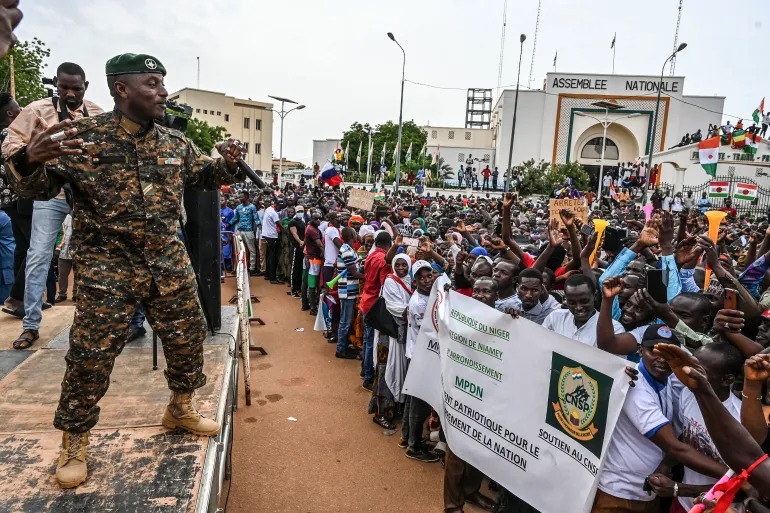In a startling development, the military rulers of Niger have heightened the already intense international crisis by demanding the departure of the French ambassador from the country. This move follows a recent coup that ousted the democratically elected president, plunging the West African nation into a state of turmoil. The situation has taken another alarming turn as neighboring Mali and Burkina Faso have been authorized by Niger’s military government to intervene in its defense, further escalating tensions in a standoff with fellow West African nations.
Escalating Crisis: Niger’s Military Government Orders French Ambassador to Leave
Amidst the aftermath of the recent coup that toppled the elected government, Niger’s military leadership has made a bold and provocative move. The French Ambassador, Sylvain Itte, has been asked to leave the country within 48 hours, with accusations of disregarding invitations for crucial meetings with the foreign ministry. The expulsion letter, dated Friday, also points to actions by the French government that are perceived as conflicting with Niger’s interests. This expulsion has added a volatile layer to the already intricate web of international relations surrounding the coup.
Regional Support and Growing Tensions: Neighboring Troops Authorized for Defense
In a surprising twist, Niger’s military government has authorized neighboring Mali and Burkina Faso to provide military support on its behalf. This bold decision raises the stakes in an ongoing standoff with fellow West African nations that have threatened to use force in order to reinstate Niger’s democratically elected president. The orders, signed by General Abdrahmane Tchiani, permit the deployment of security forces from Burkina Faso and Mali to intervene within Niger’s borders in the event of aggression. The exact nature and extent of this military support remain shrouded in uncertainty.
ECOWAS Stands Firm: Threat of Force to Reinstate Democracy Looms
The Economic Community of West African States (ECOWAS) has taken a resolute stance in response to Niger’s coup and subsequent actions. The commission president, Omar Alieu Touray, reiterated the bloc’s determination to resort to force if necessary, aiming to reinstate the deposed president and uphold democratic principles. Eleven of the fifteen ECOWAS member countries have expressed their commitment to deploying troops for this purpose, sending a strong message against the acceptance of military takeovers in the region. This firm stance underscores the regional community’s determination to quell the rising tide of coup d’etats.
As Niger’s political landscape continues to shift, its relations with France and neighboring countries are hanging by a fragile thread. The expulsion of the French ambassador, authorization of neighboring troops, and ECOWAS’s unwavering commitment to democracy all contribute to the intricate dynamics of this crisis. The fate of Niger’s political future now rests on the delicate balance between military rulers, international pressure, and regional solidarity.















